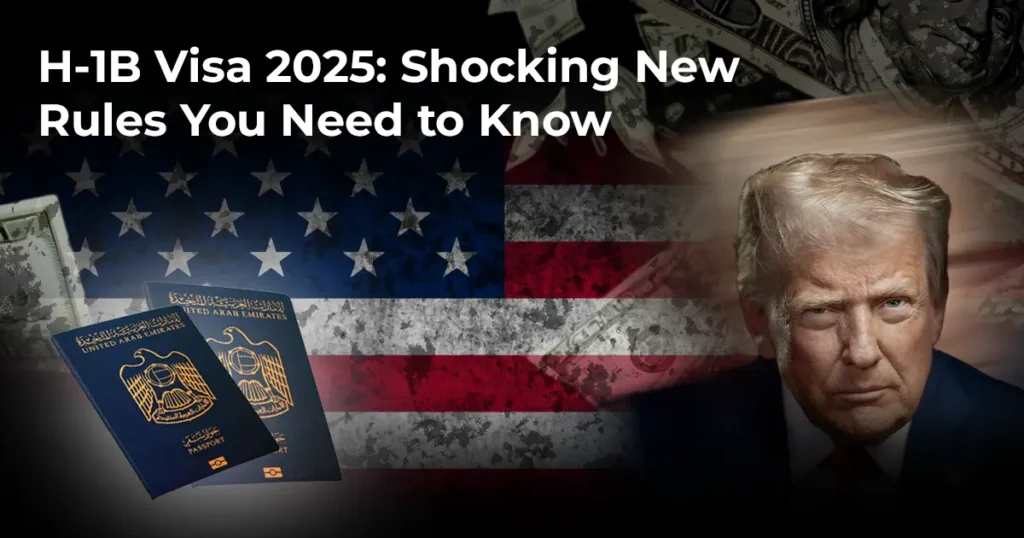Donald Trump dropped a bomb over people looking to migrate to the US on H-1B visas and tech companies who have hired foreign talent last Friday.
Since its inception, H-1B visas have provided an opportunity for US tech giants and startups to hire high-skilled workers — at wages lower than what an average American would have received. The current ruling is Trump’s way to proceed with his “Make America Great Again” project.
So, who is actually going to suffer from this H-1B visa news 2025? Let’s find out what the future for job seekers and tech firms entails after the recent USCIS H-1B visa update.
Beneficiaries of H-1B Visas Over The Years
Most H-1B visas were granted to Indians, accounting for a whopping 75% and around 11% Chinese, followed by 1% visas granted to Filipinos, Canadians, and South Koreans.
The companies that hired foreign talent abundantly are Amazon, Tesla, Microsoft, and Apple as well as Tata Consultancy Service, Infosys, and Cognizant.
And, the current H-1B cap 2025 is 65,000 visas, with additional 20,000 visas for foreign professionals who graduated from US institutions with a master’s degree or doctorate.
Previously, the H-1B visa application fees ranged from $2000-$5000 per application. Now, the POTUS has raised the fees to $100,000 per application.
The President believes that tech companies would be pleased by his changes, stating “Everyone’s going to be happy” — but this decision has only created confusion amongst the employers.
The Impact Of Trump’s Recent H-1B Visa Ruling
The White House has clarified that the fees will only affect the new visas and the upcoming H-1B lottery cycle. A White House account on X calmed the nerves of tech giants by adding crucial details:
- USCIS H-1B visa update: The recent H-1B proclamation does not apply to anyone with a current visa nor does it impact the ability of any current H-1B visa holder’s ability to travel from/to the US.
- H-1B lottery update: It applies to the next upcoming lottery cycle in February 2026 and not to anyone who participated in the 2025 lottery cycle.
Even after this elaborate clarification, the future is very uncertain as companies await more information regarding the USCIS H-1B visa update. Many visa holders find these changes upsetting and disruptive.
Many H-1B visa holders had moved to the US with H-4 visa holders, which is primarily for the spouses and dependents — so the current ruling will also affect the H-4 visa holders.
Furthermore, there were many noises that the current ruling will exacerbate the H-1B layoffs impact, as the H-1B visa holders once laid off from their jobs have to locate another willing employer to stay in the United States.
However, immigration lawyers are adamant to challenge the presidential proclamation as they argued that the text has not made any distinction between existing visa-holders and future applicants clear.
The Future For Americans And Skilled Workers Across The World
Aaron Reichlin-Melnick who is a senior fellow at American Immigration Council believes that the current decision by the POTUS is “almost certainly illegal and likely to be struck down in court”.
In 2020, a federal court invalidated Trump’s H-1B ban which would have heavily restricted high-skilled immigration to the US, so there is certainly a possibility that this decision would also be challenged in the federal courts.
For now the panic among tech companies relying on foreign talent is as visible as the sun on a clear day. Economists have also warned that the policy change to restrict the skilled labor from moving to the US will hurt the US economic growth.
The officials in the White House claim that the policy change will force the companies to prioritize hiring Americans more — while tech experts are afraid that this decision will affect the nation’s competitiveness in fields like AI.
Regardless, both skilled workers across the world and tech companies will be at the receiving end of this policy change. After the fee hike, H-1B alternatives such as O1 and L1 visas will gain traction as they are for those with extraordinary abilities.

